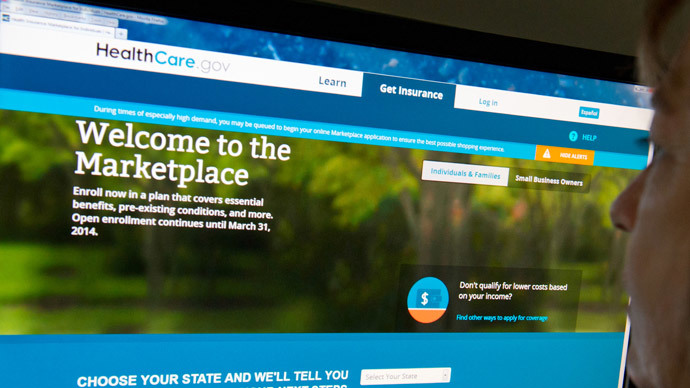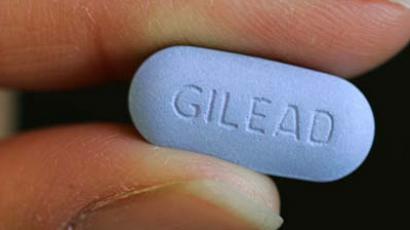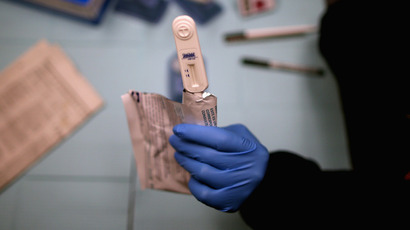Obamacare insurers in Louisiana to cut off thousands from HIV/AIDS assistance

Low-income HIV patients in Louisiana are finding themselves left in the dark after all three insurance companies that handle coverage under the Affordable Care Act across the state said they’d start rejecting certain federal assistance.
Earlier this month, a Reuters exclusive claimed that hundreds of people with HIV/AIDS in the Bayou State were about to be cut off from coverage because the largest insurance carrier there, Blue Cross and Blue Shield of Louisiana, said it would stop accepting third-party payments like those made possible by a 24-year-old law that earmarks millions of dollars in assistance annually to people living with HIV/AIDS.
“The carrier says it no longer will accept third-party payments, such as those under the 1990 Ryan White Act, which many people with HIV/AIDS use to pay their premiums,” the newswire reported then.
But according to a follow-up by Reuters published last Thursday, smaller insurance carriers across Louisiana are following suit, and customers are finding that the federal funds they once relied on for medicine and treatment might soon disappear.
In addition to Blue Cross and Blue Shield of Louisiana, Louisiana Health Cooperative and Vantage Health Plan — two smaller insurers — now say they will reject third-party payments. Together, the three companies make up the entirety of those in Louisiana that sell coverage to residents under the Affordable Care Act, United States President Barack Obama’s hallmark healthcare legislation often called “Obamacare.” Humana, a fourth company, will for now accept payments made through the HIV/AIDS assistance program, but only offers coverage through the Obamacare marketplace in the Orleans Perish region of the state.
Ted Griggs, a journalist for The Advocate, estimates that close to 2,000 impoverished Louisiana residents living with HIV/AIDS will be impacted by the maneuver.
Ahead of the official Obamacare roll-out last October, the Centers for Medicare and Medicaid Services (CMS) — the lead government agency involved in the program — told insurers that Ryan White funds "may be used to cover the cost of private health insurance premiums, deductibles and co-payments" for patients enrolled in Obamacare, according to Reuters. By November, however, the CMS was warning "hospitals, other healthcare providers and other commercial entities" that it has "significant concerns" about what the newswire regarded as “supporting premium payments and helping Obamacare consumers pay deductibles and other costs, citing the risk of fraud.”
Sure enough, a spokesperson for Blue Cross Blue Shield cited fraud to Reuters a few weeks ago when explaining the insurer’s decision.
"As an anti-fraud measure, Blue Cross and Blue Shield of Louisiana has implemented a policy, across our individual health insurance market, of not accepting premium payments from any third parties who are not related" to the subscriber, Blue Cross Blue Shield of Louisiana spokesman John Maginnis said.
Both Maginnis’ remark and the warning from CMS come despite a statement on the website for the US Department of Health and Human Service’s Health Resource and Service Administration in which the Affordable Care Act is hailed as “an historic opportunity for people living with HIV (PLWH), including those currently receiving services through the Ryan White Program, to increase their access to affordable, quality health care.”
Maginnis told The Advocate that “organizations can still provide the members with financial support toward their premiums, but they must let the members make the premium payments directly for their health insurance policies.” Such a transaction, however, is forbidden under the rules established by the federal Health Resources and Services Administration, which oversees the Ryan White program — named for an American teenager who died of complications from AIDS in 1990.
“In no case may Ryan White HIV/AIDS Program funds be used to make direct payments of cash to recipients of services,” The Advocate quoted from the agency’s website in a report published to their website last week.
Lambda Legal, a non-profit group that advocates on behalf of HIV patients, filed a federal civil rights complaint against Blue Cross Blue Shield of Louisiana’s decision shortly after it was announced. It has since filed separate complaints against Louisiana Health Cooperative and Vantage Health Plan, Reuters reported, in an effort to force insurers to accept third-party payments made by federal assistance programs.
"The worst nightmare for people with HIV/AIDS is coming true in Louisiana: they're being turned away in what's become a race to the bottom by insurers,” Susan Sommer, the group’s director of constitutional litigation, said to Reuters.
"What we're seeing in Louisiana is a crisis for low-income people with AIDS," she said. "These are exactly the people the Affordable Care Act was designed to provide a safety net for."
According to the advocacy coordinator at Shreveport, LA’s Philadelphia Center, Eric Evans, prescriptions for HIV patients can cost as much as $10,000 a month. He now tells The Advocate that Lambda Legal is considering filing lawsuits against the three insurer carriers if the federal complaints don’t cause the companies to reconsider.
In the meantime, Louisiana Blue reiterated just last week that it will stop accepting third-party payments for premiums beginning at the start of next month. That new policy, the company told Reuters, is “a safeguard against ... patient steering and other fraudulent activities."
According to the newswire, the CMS said this week that it "is considering amending the rules to require," and not merely allow, "issuers to accept these (Ryan White) payments."














